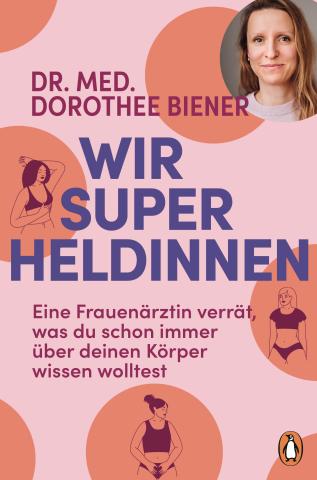Nearly 15 million girls, including many in the U.S., are forced into marriage each year. Each of these girls has a price tag—and a story. Sonita Alizada was almost sold twice. Her price tag was $9,000. The money her family received for selling her would pay for her brother’s wife.
SONITA:
My Fight Against Tyranny and My Escape to Freedom
by Sonita Alizada
HarperOne, July 2025
 The first time Sonita was put up for sale, she was 10 years old and she thought that she was participating in a dress-up game. She quickly realized that, in her culture, a wedding is a kind of funeral for the bride. Sonita says, “It represents the loss of a future. The loss of a voice.” After the marriage fell through, she was placed on sale again. She was expected to form a family, sleep with a man she never met, and then repeat the terrible cycle with her own children. But Sonita wanted more.
The first time Sonita was put up for sale, she was 10 years old and she thought that she was participating in a dress-up game. She quickly realized that, in her culture, a wedding is a kind of funeral for the bride. Sonita says, “It represents the loss of a future. The loss of a voice.” After the marriage fell through, she was placed on sale again. She was expected to form a family, sleep with a man she never met, and then repeat the terrible cycle with her own children. But Sonita wanted more.
In SONITA, the Afghan rap artist and activist shares the story of how she fled Afghanistan to pursue her dreams and evolved into a woman who is changing the world. She shares incredible highs, like winning the song writing contest that gave her the opportunity of a lifetime, and unimaginable lows, like when the cruel Taliban regained control of Afghanistan, and how some of her family escaped, and how some were left behind.
Sonita teaches us all to hold to hope. You were chosen to be part of this world and your dreams have power, too. You can be a difference maker. In these pages, Sonita shares her pictures, poems, and songs. Readers are invited to scan QR codes so they can listen to Sonita’s music. This book is more than Sonita’s story. It is a love letter for anyone who has ever dreamed of more and held onto hope that their story would be different than the ones that came before them.
Sonita Alizada is an Afghan rapper and activist who escaped child marriage in 2015, when her viral music video, “Daughters for Sale,” helped her secure a scholarship to study in the United States. Through her music and advocacy work, Sonita has campaigned for women’s rights and against child marriage, partnering with organizations like the Malala Fund, Global Partnership for Education, and Girls Not Brides. She has received the U.S. Secretary of State’s International Women of Courage Award, the MTV Europe Music Generation Change Award, and was included in BBC’s 100 Women in 2015. Sonita, who learned English upon coming to the U.S., graduated from Bard College in 2023; she is currently pursuing a master’s degree at Oxford University as a Rhodes Scholar.

 In the thick of winter 2020, when so many books were buried beneath the catastrophe of the COVID-19 news cycle, one unlikely debut seemed to cut through the noise. Jamie Hood’s How to Be a Good Girl was an inventive and hybrid work of self-making, mingling diary entries, poetry, literary criticism, and love letters to interrogate the archetype of the “good girl,” and the ideas of femininity, passivity, desire, and trauma that come with it. Journeying from the ice age to our modern-day climate crisis, it devoured texts as expansive as Levinas and Plath to the Ronettes and after-school specials, all the while asking: what pound of flesh must a woman pay to be seen as “good.”
In the thick of winter 2020, when so many books were buried beneath the catastrophe of the COVID-19 news cycle, one unlikely debut seemed to cut through the noise. Jamie Hood’s How to Be a Good Girl was an inventive and hybrid work of self-making, mingling diary entries, poetry, literary criticism, and love letters to interrogate the archetype of the “good girl,” and the ideas of femininity, passivity, desire, and trauma that come with it. Journeying from the ice age to our modern-day climate crisis, it devoured texts as expansive as Levinas and Plath to the Ronettes and after-school specials, all the while asking: what pound of flesh must a woman pay to be seen as “good.” The trauma of surviving an abusive marriage didn’t make Kelly Sundberg stronger. In fact, it nearly broke her. But leaving the abuse behind was not the end of the story, it was the beginning of a new one. In that journey, Sundberg learned in ways both good and bad, that one doesn’t necessarily get to leave abuse behind. Sometimes, everywhere you go, the memories of the abuse go with you.
The trauma of surviving an abusive marriage didn’t make Kelly Sundberg stronger. In fact, it nearly broke her. But leaving the abuse behind was not the end of the story, it was the beginning of a new one. In that journey, Sundberg learned in ways both good and bad, that one doesn’t necessarily get to leave abuse behind. Sometimes, everywhere you go, the memories of the abuse go with you.  Honorée Fanonne Jeffers is at a crossroads.
Honorée Fanonne Jeffers is at a crossroads. Gynecologist Dr. Dorothee Biener is always surprised at how little most women, young and old, know about their bodies. Yet every woman’s body is a true marvel!
Gynecologist Dr. Dorothee Biener is always surprised at how little most women, young and old, know about their bodies. Yet every woman’s body is a true marvel!